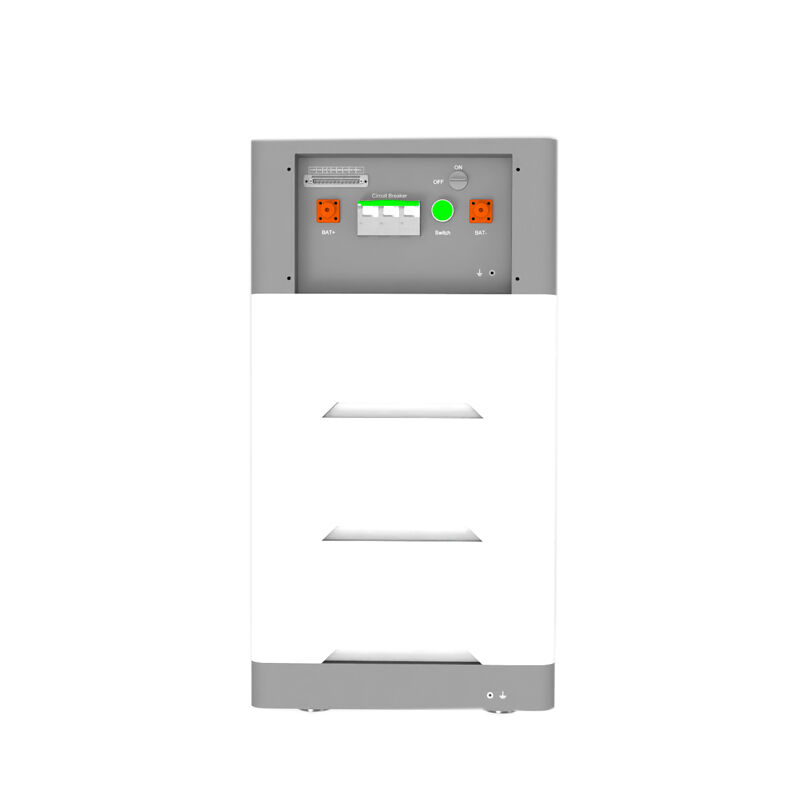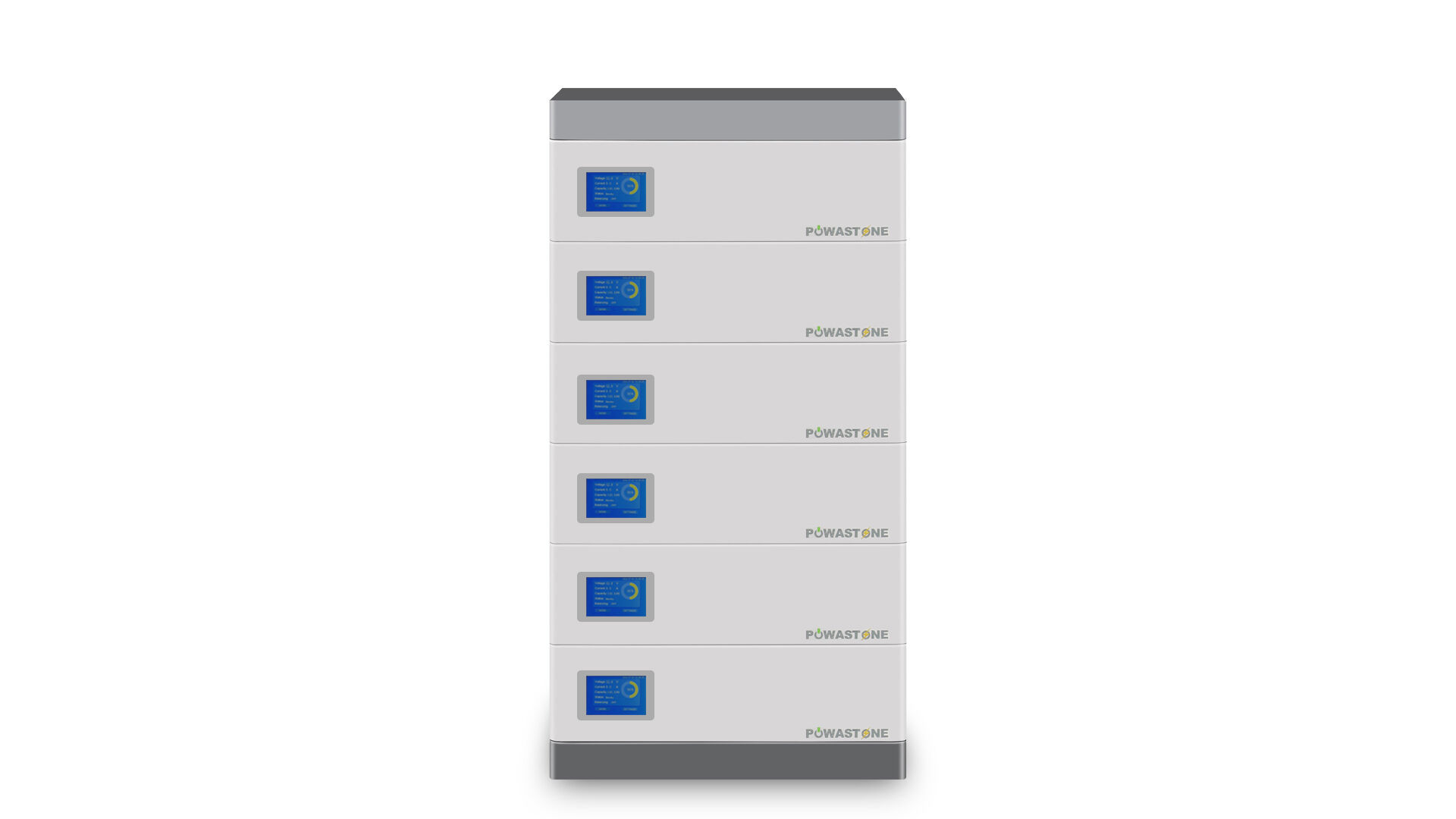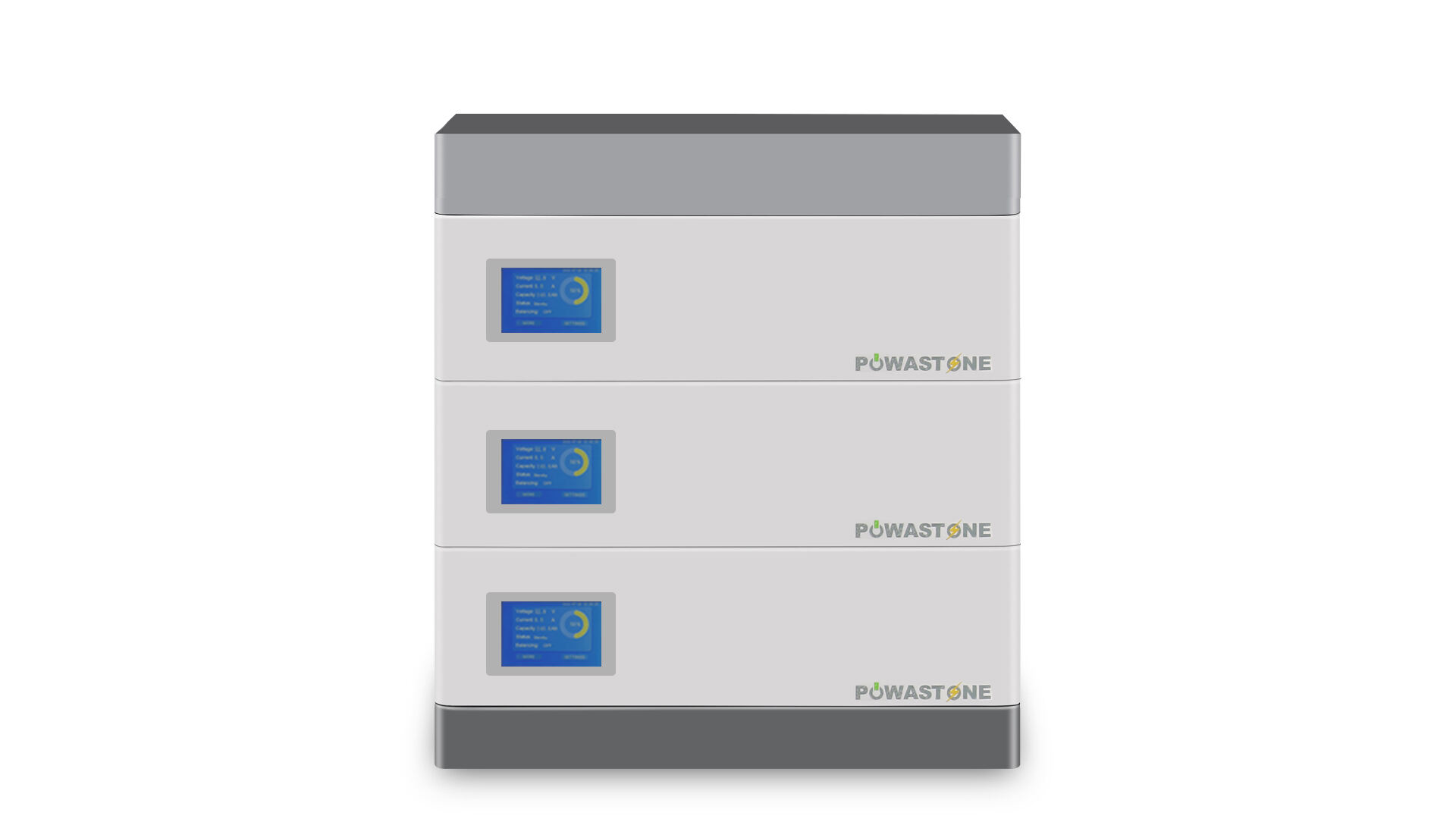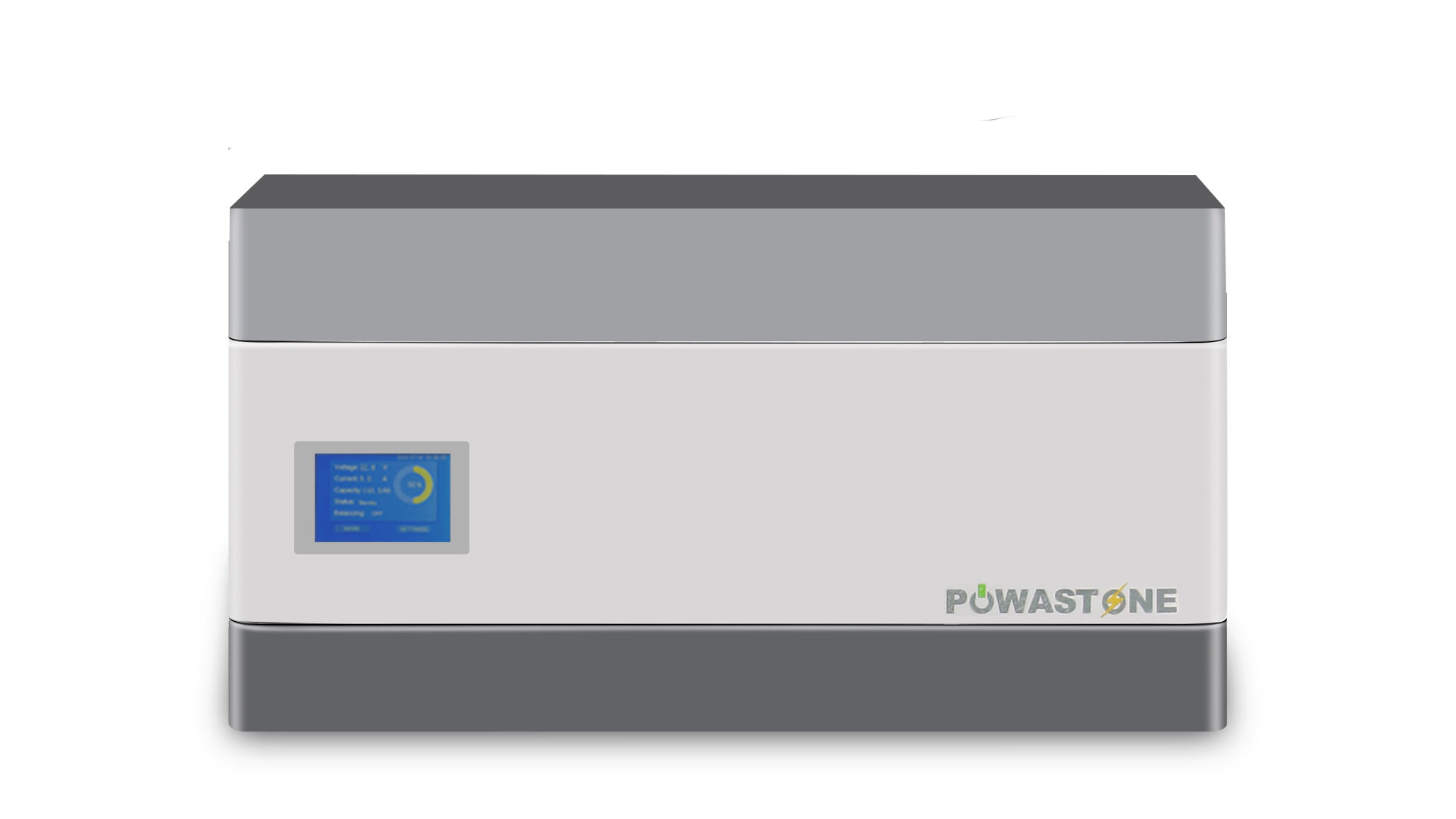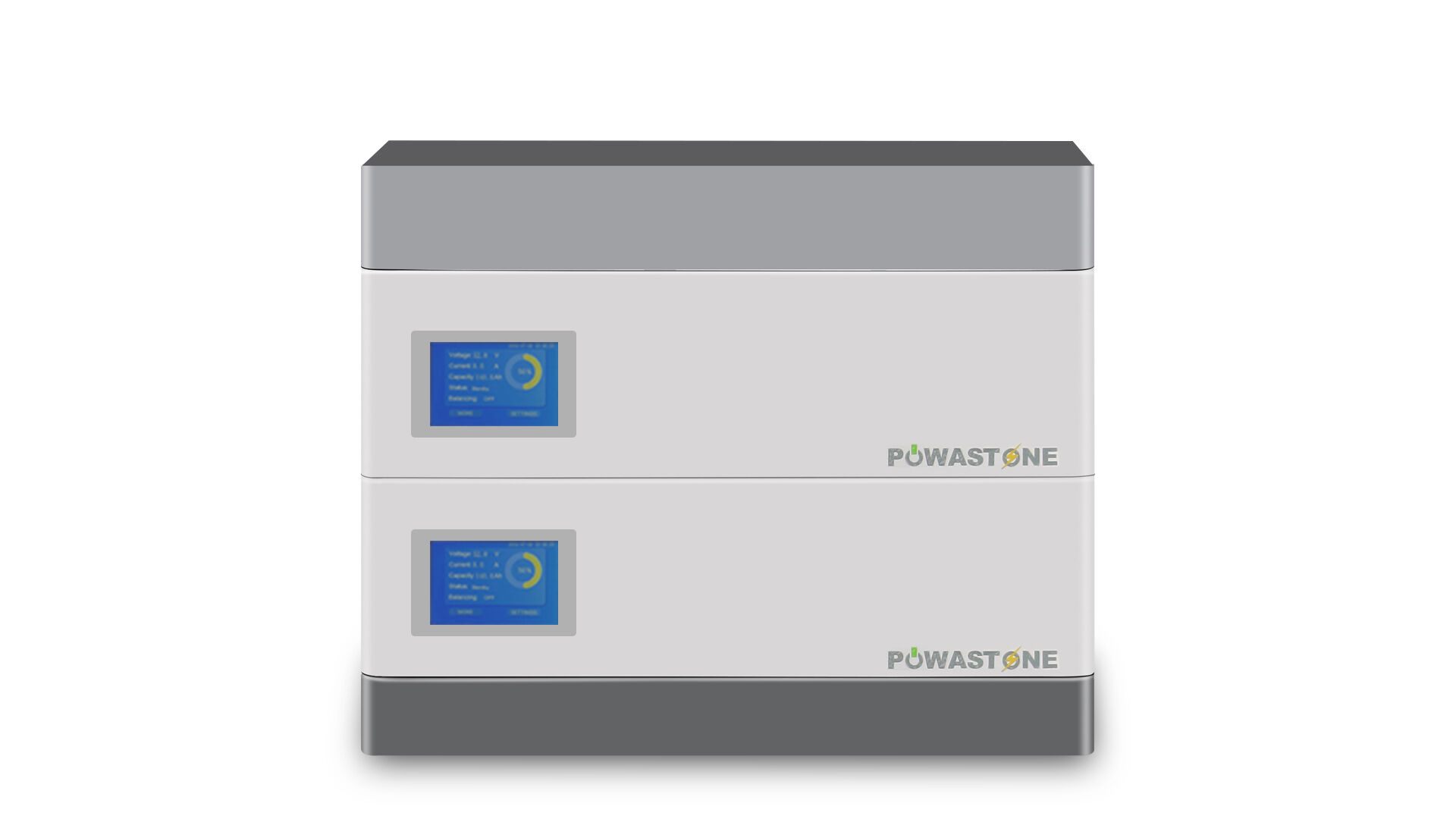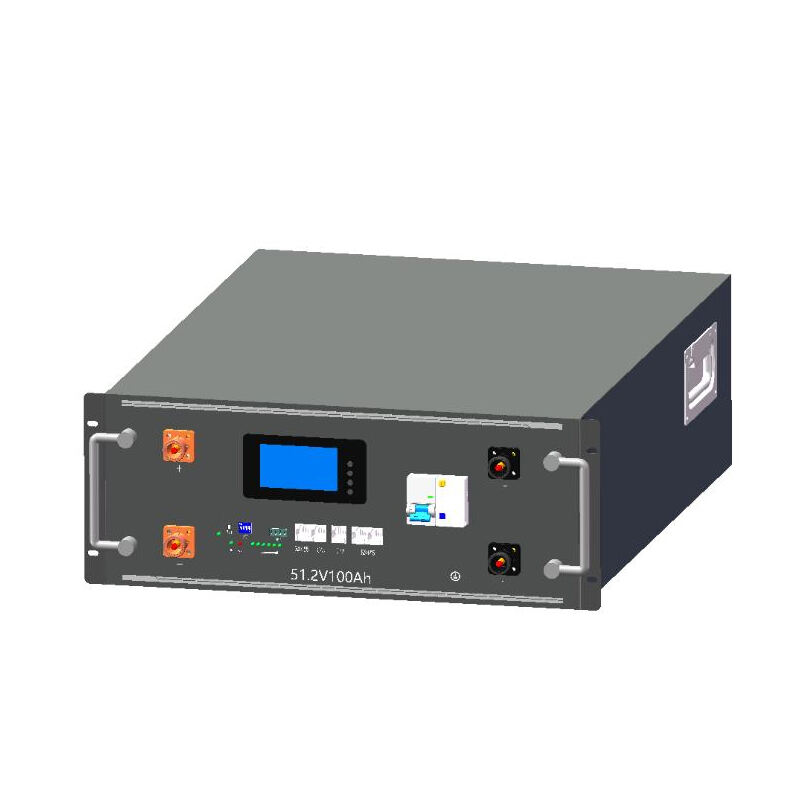Cómo elegir el mejor sistema de almacenamiento de energía para tu hogar
Time : 2025-06-21
Elegir el sistema de almacenamiento de energía óptimo para tu hogar no es solo una tarea rutinaria; es una decisión crucial que influye significativamente en la eficiencia y sostenibilidad del consumo de energía. En este artículo, exploraremos a fondo los aspectos clave que no debes pasar por alto: tipos de baterías, capacidad total, instalación y costo. Esta guía completa te permitirá tomar una decisión que se ajuste perfectamente a tus necesidades y capacidades financieras.
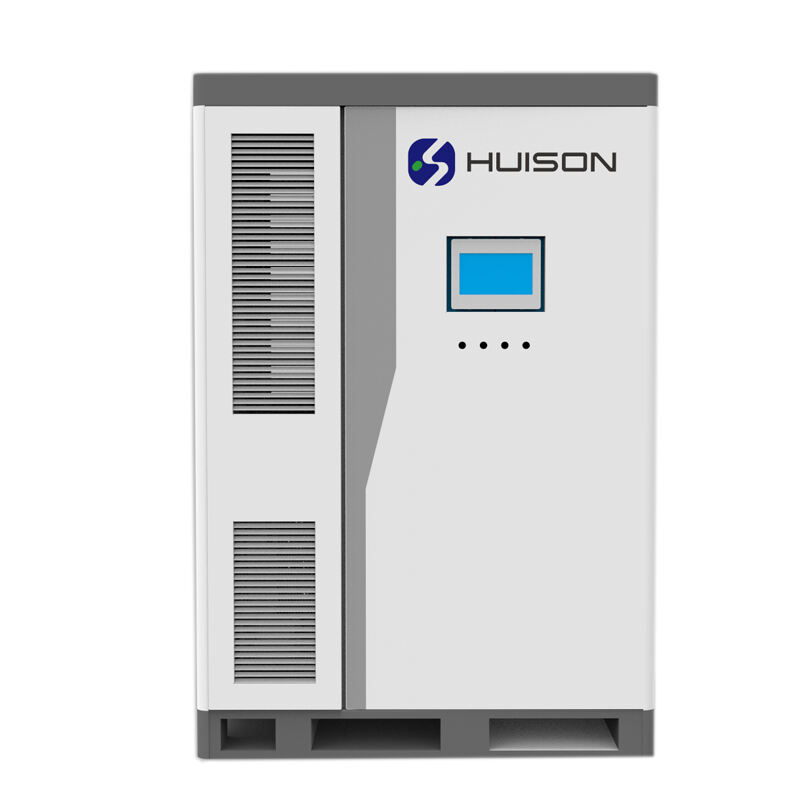

Comprensión de los Sistemas de Almacenamiento de Energía
En el corazón del uso inteligente de la energía está el sistema de almacenamiento de energía (ESS). Empresas como Huison Energy, como se muestra en https://www.huisonener gy.co m/ , están a la vanguardia en el avance de la tecnología de almacenamiento de energía. Estos sistemas funcionan como reservorios de energía, capturando la electricidad excedente generada por fuentes renovables como los paneles solares en los techos y almacenándola para su uso posterior cuando sea más necesario. Al hacerlo, los propietarios pueden reducir su dependencia de la red y lograr ahorros sustanciales en las facturas mensuales de electricidad.
Actualmente, tres tipos principales de baterías dominan el mercado: baterías de iones de litio, baterías de plomo-ácido y baterías de flujo. Cada tipo presenta ventajas y desventajas únicas. Obtener un profundo entendimiento de sus características es esencial para encontrar la opción perfecta para las necesidades energéticas de tu hogar.
Tipos de Baterías y Sus Atributos
Elegir la batería adecuada es la piedra angular para formular un sólido plan de energía hogareña. Las baterías de iones de litio se han convertido en la opción preferida entre los consumidores, y con razón. Ofrecen una alta densidad de energía, lo que les permite almacenar una cantidad significativa de energía eléctrica. Con avances en la tecnología y un aumento en la escala de producción, sus costos han estado disminuyendo constantemente, mientras que su vida útil sigue siendo impresionantemente larga.
Huison Energy ha estado innovando continuamente en el campo de las baterías de iones de litio. Sus productos no solo proporcionan un almacenamiento de energía confiable, sino que también vienen con sistemas avanzados de gestión que optimizan el rendimiento y extienden la vida útil de la batería. Esto los convierte en una excelente opción para los propietarios que desean almacenar energía solar para su uso durante los días nublados o por la noche, asegurando un suministro de energía estable incluso cuando las fuentes renovables son menos productivas.
Por otro lado, las baterías de plomo-ácido son más asequibles inicialmente. Sin embargo, sufren de una rápida degradación y una menor eficiencia en la conversión de energía. Los reemplazos frecuentes debido a su vida útil más corta pueden terminar aumentando los costos a largo plazo. Las baterías de flujo, aunque destacan en proporcionar energía continua y estable para sistemas de gran escala, tienen un precio elevado, lo que limita su adopción generalizada en entornos residenciales. Por lo tanto, es imperativo evaluar los patrones de consumo energético y las restricciones presupuestarias de tu familia antes de tomar una decisión.
La Importancia de la Capacidad en el Uso Diario
La capacidad de la batería, medida en kilovatios-hora (kWh), es otro factor crítico a considerar. Determina la cantidad de electricidad que una batería puede almacenar y suministrar posteriormente a tu hogar. Para determinar la capacidad adecuada, comienza monitoreando de cerca el consumo diario de energía de tu hogar. Identifica los períodos de mayor uso, como las noches cuando varios electrodomésticos están en funcionamiento simultáneamente. Luego, calcula la cantidad de energía requerida para satisfacer la demanda durante estas horas pico.
Por ejemplo, un hogar típico podría consumir alrededor de 15 kWh de electricidad por día, con una demanda pico que alcanza un adicional de 5 - 8 kWh durante la noche. En este caso, un sistema de almacenamiento con una capacidad de 20 - 23 kWh sería una elección adecuada. Optar por un sistema con capacidad insuficiente puede llevar a cortes de energía durante los horarios pico, causando que las luces parpadeen o que los electrodomésticos fallen. Por el contrario, un sistema sobredimensionado representa un desperdicio de recursos financieros. Lograr el equilibrio correcto asegura tanto un suministro de energía confiable como una efectividad en costos.
Instalación y mantenimiento
El proceso de instalación para sistemas de almacenamiento de energía puede variar ampliamente dependiendo del modelo. Algunos sistemas requieren instalación profesional, involucrando procedimientos complejos que necesitan la experiencia de técnicos capacitados, herramientas especializadas y cumplimiento con los códigos de construcción locales y permisos. Esto no solo aumenta el costo total, sino que también extiende el tiempo requerido para la configuración.
En contraste, muchos productos modernos se diseñan como kits plug-and-play, lo que los hace accesibles para los entusiastas del bricolaje. Estos sistemas fáciles de usar se pueden instalar en un fin de semana, reduciendo significativamente los costos de instalación y las molestias asociadas con contratar profesionales.
El mantenimiento es otro aspecto que requiere atención una vez que el sistema está en funcionamiento. Las baterías de plomo-ácido necesitan mantenimiento regular, incluyendo la verificación de los niveles de agua y la limpieza de los terminales para asegurar un rendimiento óptimo. En contraste, las baterías de litio-íon son conocidas por su naturaleza de bajo mantenimiento, permitiendo a los propietarios disfrutar de un almacenamiento de energía confiable con un mínimo de cuidado. Considere el tiempo disponible y su competencia técnica al elegir un sistema para asegurarse de que se integre sin problemas en su estilo de vida.
Consideraciones de Costo
El precio es un factor determinante importante en el proceso de toma de decisiones y puede fluctuar significativamente según la química de la batería, la capacidad de almacenamiento y los requisitos de instalación. Aunque la atracción de un costo inicial bajo pueda ser tentadora, optar por un sistema económico podría llevar a mayores gastos a largo plazo debido a una menor eficiencia, una vida útil más corta y posibles problemas de mantenimiento.
Es crucial explorar los incentivos disponibles, como créditos fiscales, devoluciones estatales y programas de recompra por parte de las empresas eléctricas, que pueden reducir sustancialmente el costo total. Por ejemplo, en ciertas regiones, los propietarios pueden ser elegibles para una subvención del 30% en la compra de sistemas de almacenamiento de energía. Además, realizar un análisis detallado de costo-beneficio para calcular el período de recuperación es esencial. Al estimar cuánto tiempo tardarán los ahorros en las facturas de electricidad en compensar la inversión inicial, puedes tomar una decisión más informada sobre la viabilidad de la inversión en comparación con otras opciones financieras.
En conclusión, elegir la batería de almacenamiento de energía adecuada para tu hogar es un proceso complejo que requiere una evaluación integral de múltiples factores. A medida que la demanda global de fuentes de energía renovable como la solar y la eólica sigue aumentando, empresas como Huison Energy están innovando constantemente, lanzando soluciones de baterías más inteligentes, compactas y económicas que remodelan el mercado regularmente. Al mantenerte al tanto de las tendencias del sector y tener una comprensión clara del consumo de energía de tu hogar, puedes seleccionar un sistema que no solo reduce las facturas de electricidad, sino que también impulsa a tu hogar hacia un futuro más sostenible y amigable con el medio ambiente.










